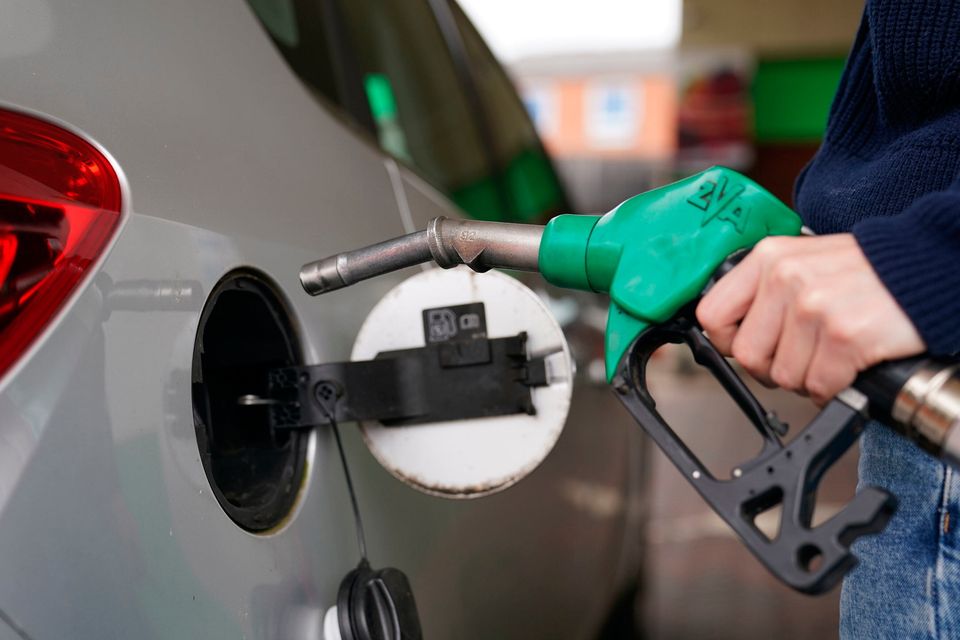Top Stories
Fuel Prices Surge as Carbon Tax Hikes Impact Motorists

The cost of fueling vehicles in Ireland is set to rise due to recent increases in the carbon tax on petrol and diesel. According to the latest AA Ireland Fuel Price survey, these hikes will also affect electric vehicle (EV) owners, as electricity prices are projected to increase, impacting home-charging costs.
The carbon tax, which was raised during the budget announcement at the beginning of October, added between €0.02 and €0.03 to the price per litre of both diesel and petrol. Following this adjustment, petrol prices at the pump have increased to €1.72 per litre, up by €0.02 from last month. Diesel prices have also seen a slight rise, now costing €1.68 per litre, which is €0.01 more than the September price.
Impact on Electric Vehicle Charging Costs
Alongside fuel price increases, several electricity providers have announced hikes in their tariffs. Companies such as Bord Gáis Energy, Energia, Pinergy, and SSE Airtricity have raised their prices this month. Additionally, Flogas implemented an increase in electricity prices back in August. This is particularly concerning for the nearly 100,000 electric vehicles currently registered in Ireland.
An AA Ireland spokesperson noted that despite the relatively stable pump prices, the rising home-energy costs will create challenges for families. They stated, “The 1c rise in the cost of diesel this month was manageable. However, the bigger pressure point will be the increase in household energy costs and EV-charging tariffs that have been live from mid-October.” The spokesperson highlighted the dual financial strain families will face as they head into winter, with increasing electricity and EV-charging costs compounding the effects of rising living expenses.
Advice for EV Owners
In light of these changes, AA Ireland has urged current and prospective EV owners to reassess their home-energy plans. They recommend checking if tariffs offer overnight or off-peak EV-charging rates, which could significantly reduce costs amid the anticipated increases. The spokesperson explained that switching to such a tariff can help mitigate the financial impact of the upcoming hikes.
The situation is further complicated by rising home-heating oil prices, which have surged by €16 to €926 for 1,000 litres of kerosene. Motorists had recently benefited from lower crude oil prices; however, fluctuations in the market, particularly following sanctions imposed by U.S. President Donald Trump on major Russian oil exporters, have caused crude prices to spike.
Looking ahead, fuel prices are expected to rise again in January due to a government decision mandating refiners to increase the biofuel content in motor fuels. This policy shift is likely to add further pressure on consumers already facing escalating costs.
-

 Top Stories3 months ago
Top Stories3 months agoTributes Surge for 9-Year-Old Leon Briody After Cancer Battle
-

 Entertainment4 months ago
Entertainment4 months agoAimee Osbourne Joins Family for Emotional Tribute to Ozzy
-

 Politics4 months ago
Politics4 months agoDanny Healy-Rae Considers Complaint After Altercation with Garda
-

 Top Stories4 months ago
Top Stories4 months agoIreland Enjoys Summer Heat as Hurricane Erin Approaches Atlantic
-

 World5 months ago
World5 months agoHawaii Commemorates 80 Years Since Hiroshima Bombing with Ceremony
-

 Top Stories3 months ago
Top Stories3 months agoNewcastle West Woman Patricia Foley Found Safe After Urgent Search
-

 Top Stories5 months ago
Top Stories5 months agoFianna Fáil TDs Urgently Consider Maire Geoghegan-Quinn for Presidency
-

 World5 months ago
World5 months agoCouple Convicted of Murdering Two-Year-Old Grandson in Wales
-

 World5 months ago
World5 months agoGaza Aid Distribution Tragedy: 20 Killed Amid Ongoing Violence
-

 World5 months ago
World5 months agoAristocrat Constance Marten and Partner Convicted of Infant Murder
-

 Top Stories4 months ago
Top Stories4 months agoClimbing Errigal: A Must-Do Summer Adventure in Donegal
-

 Top Stories4 months ago
Top Stories4 months agoHike Donegal’s Errigal Mountain NOW for Unforgettable Summer Views









